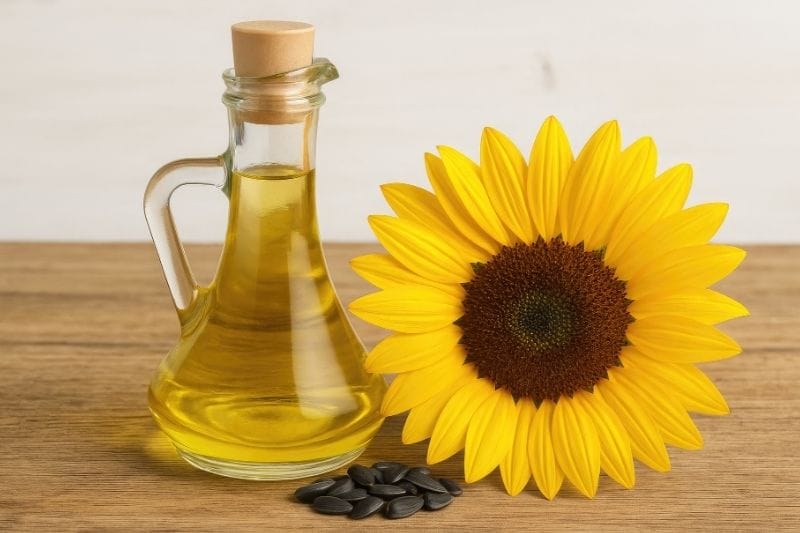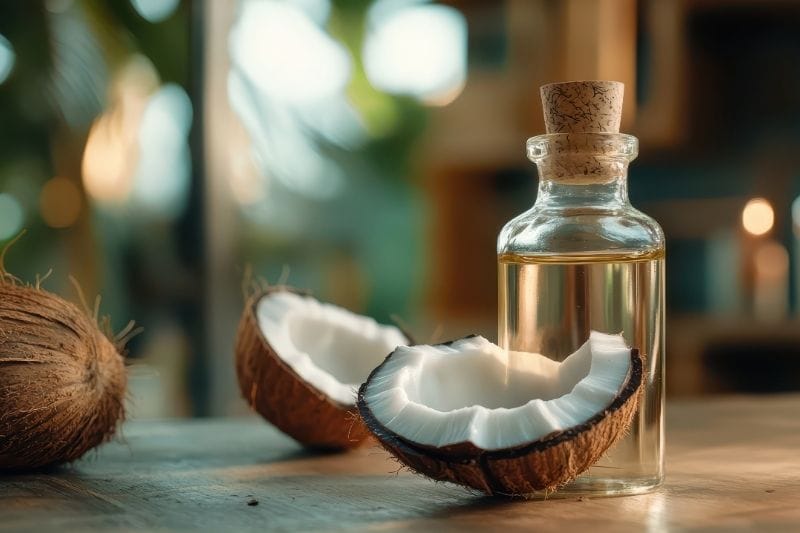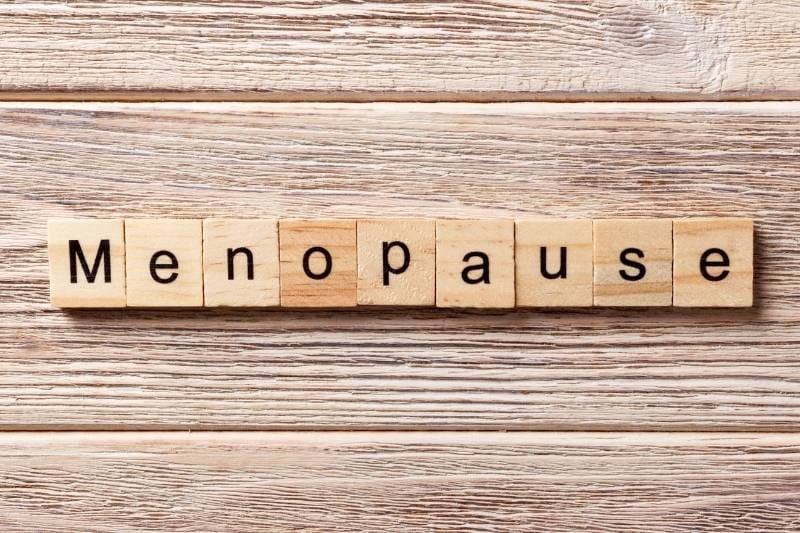Are seed oils bad for you? This is a question many people ask as opinions online, and on social media, often conflict. The truth is that seed oils are not automatically harmful, but how much you eat, the type of oil, and how it is used can make a difference. Some are processed heavily and appear often in ultra-processed foods, while others can be part of a healthy balanced diet. Here is a simple, clear look at what seed oils are, why they have a bad reputation, whether they affect weight loss, and how to make informed choices.
What Are Seed Oils?
Seed oils are oils extracted from seeds such as sunflower, rapeseed, soybean, cottonseed, sesame, and grapeseed. They are commonly used in cooking and in many packaged foods because they are inexpensive and have a high smoke point, making them useful for frying. You will find them in crisps, baked goods, margarine, salad dressings, and even plant-based drinks like oat milk.
Why Do People Say Seed Oils Are Bad For You?
A big reason for the concern around seed oils is that many of them are high in omega-6 fatty acids. Omega-6 fats are not bad on their own, but having a lot more omega-6 than omega-3s may be linked to inflammation in the body, although research on this is not conclusive. Modern diets often already have a high amount of omega-6s, especially if you eat a lot of processed foods, fried foods, or ready meals.
Another concern is that some seed oils go through heavy processing. This can involve refining, bleaching, and deodorising the oil. During this process, heat and chemicals are used, which may create harmful compounds if oils are overheated or reused multiple times. This has led some people to suggest that seed oils are dangerous or toxic, but current evidence does not show that moderate use of fresh cooking oil is harmful.
Why Seed Oils Might Not Be As Bad As You Think
Despite the negative press, seed oils are not inherently harmful for everyone. Many of them, like sunflower and rapeseed oil, are high in unsaturated fats, which can be beneficial for heart health. Some seed oils are also a good source of vitamin E, which acts as an antioxidant.
Most health issues linked to seed oils come from overconsumption and eating them mainly in ultra-processed foods. Using a moderate amount of a high-quality, cold-pressed oil at home is unlikely to be harmful. Problems usually arise from a diet that relies heavily on deep-fried and processed foods rather than from seed oils themselves.
Are Seed Oils Inflammatory?
There is ongoing debate about whether seed oils are inflammatory. Some research suggests that having much more omega-6 than omega-3 may contribute to inflammation, which is linked to health problems over time. However, other studies have shown that moderate intake of seed oils as part of a balanced diet does not necessarily increase inflammation. The key is balance. Eating oily fish, nuts, and seeds can help you get enough omega-3s to even things out.
How Are Seed Oils Made?
Most supermarket seed oils are made using a process called solvent extraction, where seeds are crushed and treated with a chemical solvent, usually hexane, to draw out the oil. The oil is then refined to remove impurities. This process is considered safe by food safety authorities. Some people prefer cold-pressed or extra virgin oils, which are mechanically pressed without high heat or chemicals, keeping more of their natural nutrients.
A Simple List of Common Seed Oils
- Sunflower oil
- Rapeseed (canola) oil
- Soybean oil
- Cottonseed oil
- Grapeseed oil
- Sesame oil
- Pumpkin seed oil
- Safflower oil
These are the oils most likely to appear in packaged foods. If you want to limit your intake, start by reading ingredient labels.
Foods and Drinks That Often Contain Seed Oils
Seed oils are in many everyday foods, particularly those that are fried or packaged. Common examples include:
- Crisps and snack foods
- Biscuits, cakes, and pastries
- Salad dressings and mayonnaise
- Margarine and spreads
- Plant-based milks such as oat or almond milk
- Ready meals and takeaway food
Avoiding seed oils completely would mean cutting out most processed foods, which is not always realistic. Instead, you might choose certain alternatives, such as crisps cooked in olive oil or butter instead of seed oil.
Are Seed Oils Good or Bad for Weight Loss?
Seed oils themselves do not cause weight gain or stop you losing weight. Like all fats, they are high in calories, so the amount you eat matters. If you regularly consume a lot of fried or processed foods cooked in seed oils, it is easy to overeat without realising. This can make weight loss harder because you are taking in more calories than you need.
On the other hand, using a small amount of a healthy oil in home-cooked meals can actually support weight loss. Fats help you feel full, which can stop you from snacking later. The key is moderation and choosing less processed foods overall.
Choosing the Right Oils for Cooking and Health
You do not need to fear all seed oils. If you want to be cautious, choose cold-pressed or extra virgin oils and avoid eating large amounts of ultra-processed foods. Many people prefer olive oil or avocado oil for cooking, as they are less processed and contain healthy fats. Keeping a balance between omega-6 and omega-3 fats is important for long-term health.
It is also worth staying informed as new research continues to come out. Nutrition science evolves, and advice may change over time as more studies are published.
Frequently Asked Questions About Seed Oils
Should I avoid seed oils completely?
No. Unless you have a specific allergy or medical advice to do so, small amounts of seed oils are not harmful for most people. Focus more on reducing ultra-processed foods rather than cutting out oils completely.
Are seed oils toxic?
Seed oils are not toxic in normal amounts. Harmful compounds can form when oils are repeatedly heated or overheated, usually in commercial frying. Using fresh oil in moderation at home is safe.
Which seed oils are the healthiest?
Cold-pressed oils such as sunflower, rapeseed, and sesame oil can be part of a healthy diet. Oils used in deep frying or heavily refined oils are best eaten in small amounts.
Do seed oils make you fat?
No single food makes you fat on its own. Consistently eating more calories than you burn leads to weight gain. Seed oils are high in calories, so portion control matters if you are trying to lose weight.
What is the best oil for cooking if I want to avoid seed oils?
Extra virgin olive oil and avocado oil are popular alternatives that are less processed and high in healthy fats.
Should I keep checking for new advice on seed oils?
Yes. Nutrition research is always developing, and new findings can lead to updated recommendations. It is a good idea to stay informed from reliable health sources.
I can help you…
I am a Weight Loss Coach, successfully helping people just like you to lose weight and keep it off:
Want to get stronger, fitter or gain muscle?




